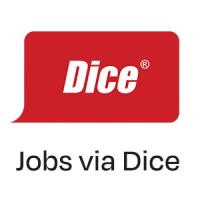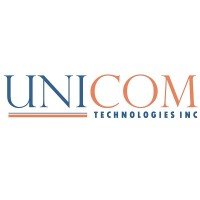

Power Platform SME
⭐ - Featured Role | Apply direct with Data Freelance Hub
This role is for a Power Platform SME, offering a 5-6 month remote contract at a competitive pay rate. Key skills include Power Apps, Power BI, and Power Automate, with experience in migration strategies from Microsoft Fabric to Databricks required.
🌎 - Country
United States
💱 - Currency
$ USD
-
💰 - Day rate
760
-
🗓️ - Date discovered
August 21, 2025
🕒 - Project duration
3 to 6 months
-
🏝️ - Location type
Remote
-
📄 - Contract type
W2 Contractor
-
🔒 - Security clearance
Unknown
-
📍 - Location detailed
New York, NY
-
🧠 - Skills detailed
#Migration #Microsoft Power BI #Azure #Storage #Automation #Scala #Consulting #Azure cloud #BI (Business Intelligence) #Databricks #Cloud #Process Automation #Data Integration #Power Automate #Strategy
Role description
Power Platform SME - Fabric to Databricks
• 100% Remote
• Must be USC or GC Holder, no 1099 or C2C
• 5-6 month contract, potential to extend.
We are seeking a Microsoft Power Platform expert with a unique blend of technical and consulting skills to support a high-profile client engagement. This individual will play a key role in assessing the client’s current environment, designing the migration strategy, and delivering solutions using the Microsoft Power Platform — with a focus on Power Apps, Power BI, and Power Automate — while supporting the transition from Microsoft Fabric to Databricks.
The ideal candidate is strong in at least one core Power Platform capability but has working knowledge across the stack. This role requires hands-on technical delivery with some client interaction, alongside collaboration with a lead consultant who will manage executive-facing responsibilities.
Responsibilities
• Lead and support a 4-week assessment phase, evaluating the client’s existing Microsoft Fabric environment and defining the migration roadmap to Databricks.
• Design, develop, and deliver solutions using Power Apps (preferred), Power BI dashboards, and PowerAutomate workflows.
• Analyze legacy infrastructure, identify gaps, and propose optimized future-state architecture.
• Build and configure custom applications, process automations, and reporting dashboards to support client business objectives.
• Support the migration of data sources and workflows from Microsoft Fabric into Databricks, ensuring integration with the client’s backend systems.
• Collaborate with client stakeholders to capture requirements and translate them into technical solutions.
• Work alongside a lead consultant to provide input during client-facing sessions (some client interaction expected, but heavy client-facing presence not required).
• Ensure solutions align with best practices in performance, scalability, and governance within a Microsoft cloud environment (Azure preferred).
Qualifications
• Proven experience with the Microsoft Power Platform:
• Power Apps – custom app development and solution design (priority)
• Power BI – building interactive dashboards and reports
• Power Automate – workflow automation and process optimization
• Strong background in data integration and connecting to various data sources.
• Experience evaluating legacy environments and designing migration strategies.
• Knowledge of Microsoft Fabric and hands-on experience migrating to or integrating with Databricks preferred.
• Familiarity with Azure cloud services (identity, storage, governance) is a plus.
• Ability to collaborate with both technical teams and business stakeholders.
• Strong problem-solving skills and ability to work in a fast-paced, project-driven environment.
Power Platform SME - Fabric to Databricks
• 100% Remote
• Must be USC or GC Holder, no 1099 or C2C
• 5-6 month contract, potential to extend.
We are seeking a Microsoft Power Platform expert with a unique blend of technical and consulting skills to support a high-profile client engagement. This individual will play a key role in assessing the client’s current environment, designing the migration strategy, and delivering solutions using the Microsoft Power Platform — with a focus on Power Apps, Power BI, and Power Automate — while supporting the transition from Microsoft Fabric to Databricks.
The ideal candidate is strong in at least one core Power Platform capability but has working knowledge across the stack. This role requires hands-on technical delivery with some client interaction, alongside collaboration with a lead consultant who will manage executive-facing responsibilities.
Responsibilities
• Lead and support a 4-week assessment phase, evaluating the client’s existing Microsoft Fabric environment and defining the migration roadmap to Databricks.
• Design, develop, and deliver solutions using Power Apps (preferred), Power BI dashboards, and PowerAutomate workflows.
• Analyze legacy infrastructure, identify gaps, and propose optimized future-state architecture.
• Build and configure custom applications, process automations, and reporting dashboards to support client business objectives.
• Support the migration of data sources and workflows from Microsoft Fabric into Databricks, ensuring integration with the client’s backend systems.
• Collaborate with client stakeholders to capture requirements and translate them into technical solutions.
• Work alongside a lead consultant to provide input during client-facing sessions (some client interaction expected, but heavy client-facing presence not required).
• Ensure solutions align with best practices in performance, scalability, and governance within a Microsoft cloud environment (Azure preferred).
Qualifications
• Proven experience with the Microsoft Power Platform:
• Power Apps – custom app development and solution design (priority)
• Power BI – building interactive dashboards and reports
• Power Automate – workflow automation and process optimization
• Strong background in data integration and connecting to various data sources.
• Experience evaluating legacy environments and designing migration strategies.
• Knowledge of Microsoft Fabric and hands-on experience migrating to or integrating with Databricks preferred.
• Familiarity with Azure cloud services (identity, storage, governance) is a plus.
• Ability to collaborate with both technical teams and business stakeholders.
• Strong problem-solving skills and ability to work in a fast-paced, project-driven environment.






